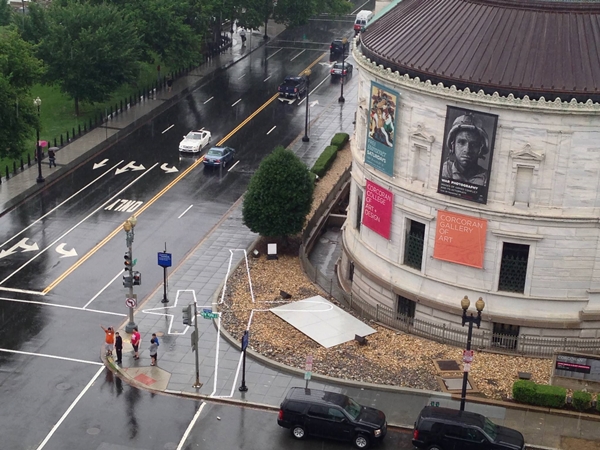Art & Exhibitions
Fight to Save the Corcoran Heads to Court


Sarah Cascone

A collective going by the name “Save the Corcoran” is taking a stand against the planned takeover of Corcoran Gallery of Art in Washington, DC, by the city’s National Gallery of Art and George Washington University (GWU), reports the New York Times.
Back in May, the Corcoran announced the plan, which would see its more-than 17,000 piece collection go to the National Gallery (and other nearby museums), which would maintain a “legacy gallery” at the Corcoran’s old building while hosting additional exhibitions of modern and contemporary art there. The building would become the property of GWU, and host Corcoran College of Art + Design classes (see artnet News report).
One of the nation’s oldest private museums, the Corcoran cites financial difficulties as necessitating its decision to dissolve itself. Those who oppose this plan believe that doing so is a direct violation of the Corcoran’s 1869 charter, which called for the “perpetual establishment and maintenance of a public gallery and museum.” Under the National Gallery’s management, they argue, the building will no longer be a museum.
The Corcoran is set to go before a District of Columbia judge on July 18 seeking approval to override the charter and move forward with the National Gallery-GWU plan. Papers filed by the struggling institution last month claim that for the Corcoran to carry on in its present incarnation would be “financially impossible” and that the new organizational structure would be “most closely aligned with the original intent of Mr. Corcoran.”
The Save the Corcoran group, for its part, has also taken to the courts, filing papers of its own that contend that the museum’s trustees intend to “commit the gravest form of fiduciary breach: to destroy the very institution they are charged with protecting.” Despite the museum’s strained finances, they argue, “the charitable purpose of the trust may yet be practicable, if managed properly.”
The group is calling for a thorough examination of the Corcoran’s finances, which they allege have been mismanaged. “If one of the oldest and most vaunted art museums in Washington, DC, is permitted to disappear overnight,” Save the Corcoran argues, “the public interest demands that such an undertaking proceed with the utmost consideration and with due regard for all interested voices.”